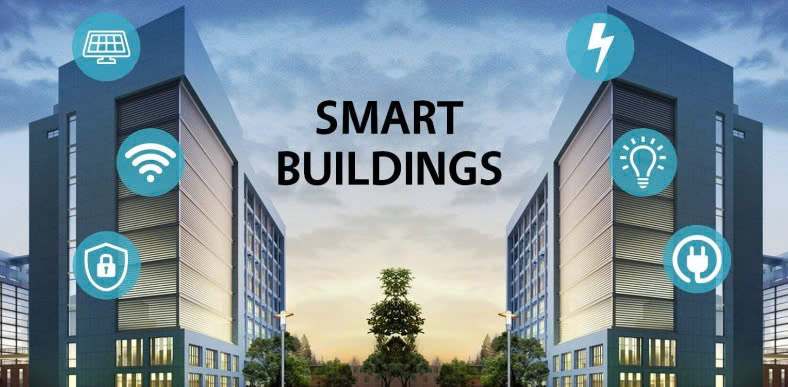In the context of rapid urbanization and growing demands for energy efficiency, smart buildings have emerged as a significant trend in the real estate sector. These structures not only represent a new advance in design and technology but also reflect the increasing need for convenience and efficiency in living and working spaces.

Smart buildings are equipped with advanced technology systems that allow for the integration and control of various building functions through connected devices and intelligent sensors. This technology automates processes such as adjusting lighting, controlling temperature, and monitoring security, providing optimal convenience for users. By leveraging connectivity and automation, smart buildings enhance the quality of life and optimize the operation of building systems.
One of the standout benefits of smart buildings is their ability to manage energy efficiently. Intelligent control systems optimize energy use, from automatically adjusting heating and cooling systems to managing lighting and electronic devices. This not only reduces energy waste but also lowers operating costs and creates a more environmentally friendly working environment. Given the context of climate change and increasing emphasis on environmental protection, optimizing energy consumption is a crucial factor.
In addition to energy savings, smart buildings integrate advanced monitoring and data analysis systems. These systems collect and analyze data from sensors and connected devices, providing insights into the building’s performance. Managers can monitor system status, detect potential issues early, and make informed decisions to improve efficiency. This analysis also enhances user experience, creating more optimal living and working environments.

Smart buildings are not just a temporary trend but are becoming the standard in modern real estate design. These structures play a crucial role in building sustainable cities by minimizing the negative impact of construction on the environment. By applying sustainable solutions in design and operation, smart buildings contribute to reducing carbon emissions and protecting natural resources.
As investors and real estate developers increasingly recognize the benefits of smart buildings, this trend continues to open up exciting investment opportunities. Smart buildings not only provide long-term value for investors but also create new opportunities in technology and design development. The combination of advanced technology and sustainable design will reshape how we live and work in the future, while contributing to the sustainable development of urban areas.
Smart buildings are asserting their importance in the modern real estate sector. With their ability to optimize operational efficiency, save energy, and create optimal living and working environments, these structures not only meet current needs but also pave the way for the future. As technology continues to advance, smart buildings will evolve further, contributing to the sustainable development of the real estate sector and the creation of smarter cities.
Hotline
Hotline